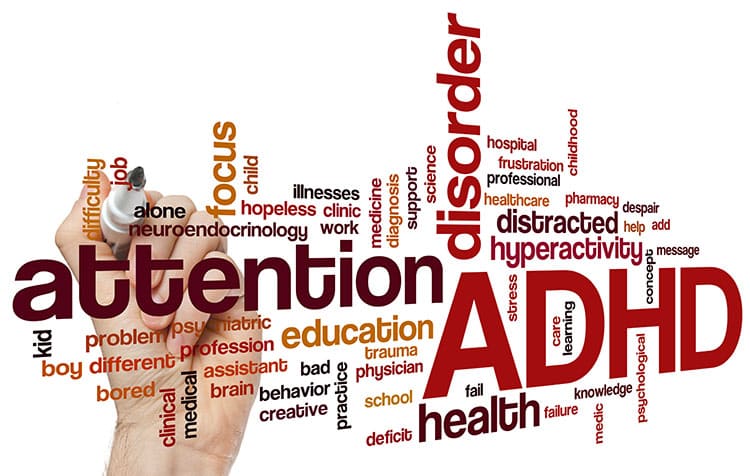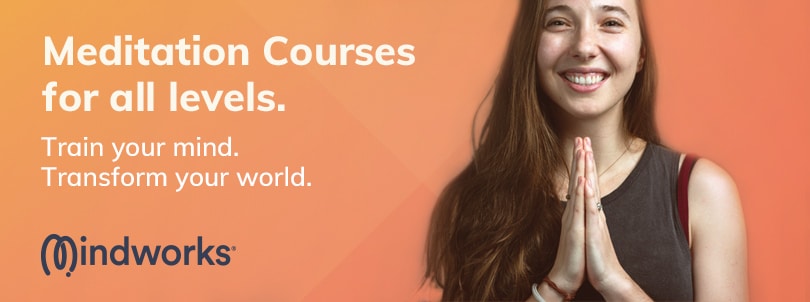Meditation and ADHD
Category: Health and Meditation

Attention Deficit Hyperactivity Disorder (or simply ADHD) is a disorder characterized by hyperactivity, extreme distractibility and impulsivity. This condition commonly presents itself during childhood, but it may not be diagnosed in a timely manner. If left unchecked, it usually progresses into adulthood. It is often difficult for people who suffer from ADHD to organize activities, manage their time, remain attentive, keep up in school or maintain their jobs.
Symptoms of ADHD related to inattention include:
- Easily distracted
- Frequent daydreams
- Tendency to lose things
- Repeated careless mistakes
- Dislike of tasks that require sustained attention
- Trouble organizing and remembering to do daily chores
- Appears not to be listening to people
Symptoms of ADHD related to hyperactivity-impulsivity include:
- Difficulty staying quiet or still
- Restlessness
- Tendency not to wait for their turn
- Interrupts others, over-eager to express themselves
- Insufficient distance from emotions
Mindfulness for ADHD
One study conducted by the Journal of Attention Disorders that looked at the relationship between ADHD and meditation suggested that mindfulness has a positive impact on adults and adolescents suffering from attention deficits. Their conclusion has been backed up by several meditation experts.
Meditation plays out in three basic steps. First, individuals focus their attention on an object or process (following the breath, for instance). This acts as an attention anchor. The second step involves noticing and acknowledging the presence of distractors – thoughts, sensations, emotions and the like – and learning to let go of them. The third step entails gently but firmly coming back to the anchor as often as necessary.
People with ADHD who repeat this simple mindfulness meditation exercise often find that it improves their focus. By remaining in the present moment and training in letting go of distractors, they realize that they have agency over how they react to these distractors. It has also been shown that mindfulness for ADHD significantly improves the span of concentration and focus. Participants who completed the aforementioned study reported extremely high satisfaction levels, giving the program an average score of 9/10.
Fully 78% of those who participated in the study showed an average of 30% reduction in ADHD symptoms. Among adults, anxiety and depression symptoms also decreased. This result represents a critical, significant breakthrough in the management and treatment of ADHD – a decline of 30% in ADHD symptoms is more beneficial than the benefits offered by ADHD medication thus far. Individuals living with ADHD often seek alternative, non-pharmacological methods of treating their condition. With such promising results linking ADHD and meditation, an answer is within reach.
Training your mind to be calm
Anyone can practice mindfulness and benefit from it. You only need to sit down, get comfortable and take at least five minutes to focus on your breathing technique. Notice the varying sensations seething through your body as you breathe deeply. Pay attention to the rising and falling of your diaphragm. You may soon find yourself thinking of other stuff – your meeting with a client or dinner plans with your sister. Don’t beat yourself up for this, it’s completely natural. Simply notice these thoughts and then refocus on your breath.
Mindfulness is a practice that can be performed at any given time. Whether you’re cooking, conversing with your friends or brushing your teeth, simply tune your mind to a state of deep self-awareness. Notice every detail about the tasks you carry out. Doing this for several minutes every day trains your mind to focus on the here and now. Tokpa Korlo, a meditation teacher also diagnosed with ADHD, teaches in his Mind Talk on Mindworks App that our fear of now often kills our motivation and passion to do what we really want. It makes life difficult. But when we practice mindfulness, we cherish the present time and seize the current moment. It’s therefore unsurprising that mindfulness for ADHD works wonders.
If you’re looking for help coping with ADHD, you could always try guided meditation. While there are many apps or platforms that could help you, Mindworks Meditation Courses come highly recommended. They contain an assortment of daily guided meditations and Mind Talks which will prove extremely beneficial, including compelling real-life instructions and meditation guidelines from Tokpa Korlo. Remember, “Meditation applies brakes to your mind.”








